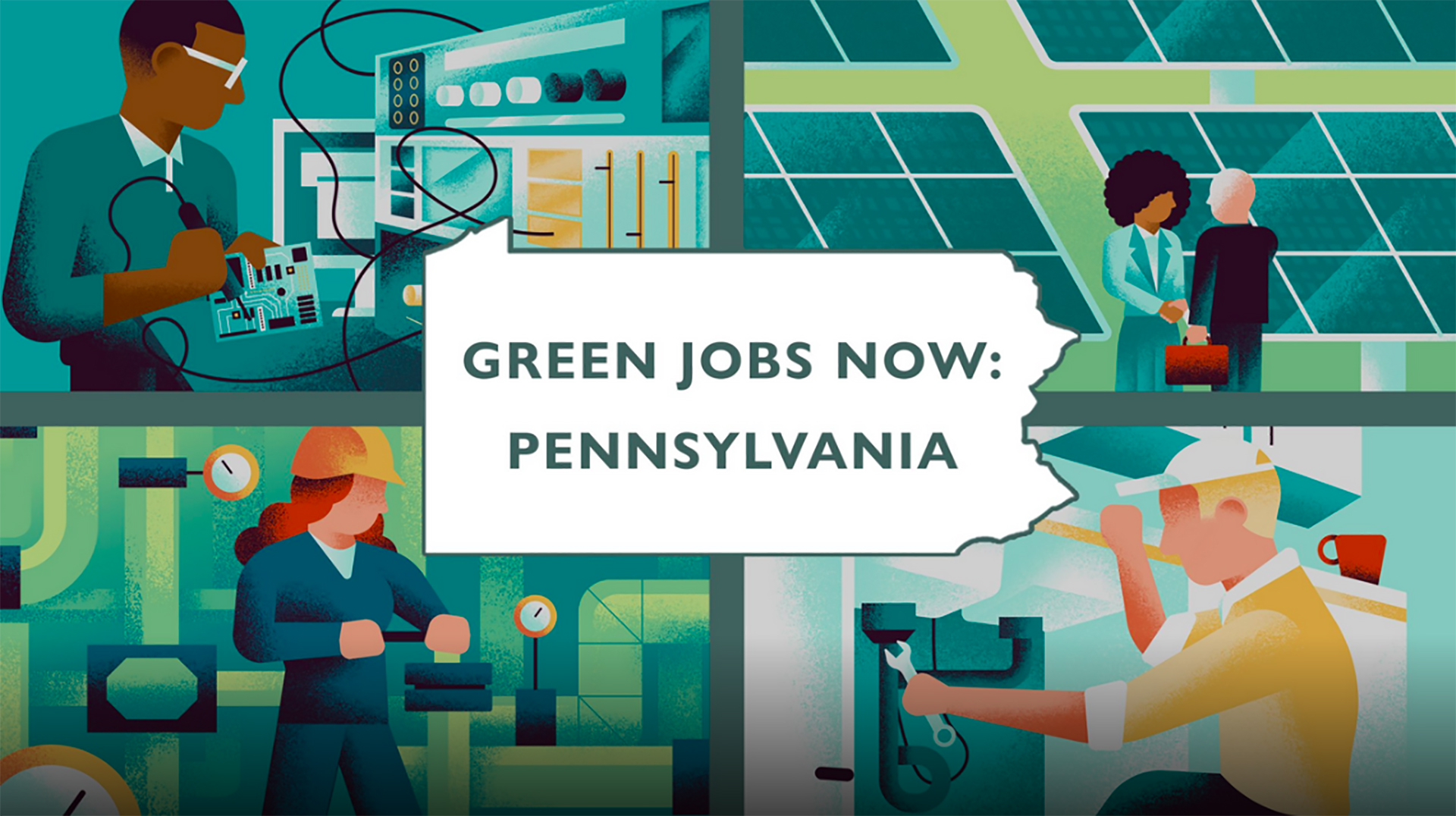
Report shows 30,000 workers in PA’s “Green Economy,” projected to grow 6.4%
by Michael Machosky
February 9, 2022
Green jobs are coming to the rolling green hills of Pennsylvania. In fact, they’re already here.
Thirty thousand, in fact.
After decades of chasing after every dirty, polluting industry there is, no matter what the costs in subsidies or downstream damage — from fracking to cracking — it’s a bit of a change. But findings from WorkingNation’s “Green Jobs Now” report points to a new way forward for the state.
Pennsylvania is growing its green jobs faster (an estimated 6.4% over the next five years) than the nation as a whole (which is expected to grow a still-significant 5.7%), according to Emsi Burning Glass, the firm that collected and analyzed the data for WorkingNation, a nonprofit news organization that reports on the challenges facing the U.S. workforce.
“We are doing eight separate states,” says Ramona Schindelheim, WorkingNation’s editor-in-chief, who is overseeing the project and is an expert on employment and workforce issues. Pennsylvania was the first state that we looked at, and we picked it just because we thought the state had an interesting trajectory…it has a history of manufacturing and coal energy and there's a way to move forward beyond that.”
The report also shows the state’s most in-demand green jobs skills and suggests certain workers could get salary boosts by learning and applying green skills at their jobs.
"Pennsylvania is a window on the future," says Paula DiPerna, an author and strategic environmental policy advisor collaborating on the project. "Pennsylvania is trying to move towards a new definition of industrial growth in terms of transitioning from being dependent on an economy that flows from the use of fossil fuels to one that flows from alternatives.”
There are an estimated 1,518,525 workers in Pennsylvania who could adapt their existing skills into green jobs.
“A lot of people would like the environment to improve right?” says Schindelheim. “And by taking those steps at a state, local and business level, they're helping improve the environment. And there's a lot of change that has to happen in the infrastructure. So that creates jobs along the way.”
First, there’s what they call “core green jobs,” which are mostly what you’d think: solar panel installation, solar panel manufacturing, wind turbine technician, energy manager, et cetera. Those jobs increased at a consistent 1,300 in the state in 2021.
Then there’s “green enabled jobs” — roles that are not considered green by default but require green skills, like building and general maintenance technician, and several different engineering roles. There are about 4,500 of these jobs open in Pennsylvania. After that, there’s “green enabling occupations” — 1,100 positions — which are at companies with a green focus but require other skills, like an accountant at a solar energy business.
The report also highlights that higher wages could be in store for those with “green” skills in core green and green-enabled jobs. An electrician with green skills can make $5,000 more a year, for example, than the average electrician in Pennsylvania.
The recently-passed $1.2 trillion federal infrastructure bill includes $11.3 billion for abandoned-mine reclamation. PA will get the most of any state, about $245 million. That in itself will account for plenty of green jobs.
Pennsylvania’s opportunities in the green economy are vast because the state has always found ways to lead, notes Tom Foley, Ph.D., an energy historian and deputy policy director at the Pennsylvania Department of Labor and Industry.
“It’s a state of innovation, particularly in the energy industry,” he says. “Pennsylvania led through the development of the coal industry, the petroleum industry, an early adopter of nuclear technology to generate electricity. It’s always been on that leading edge.”
“As a historian, I think the green economy is a key part of building a sustainable — in both the economic as well as the ecological sense — and resilient economy for all workers, businesses, and consumers.”

Leave A Comment